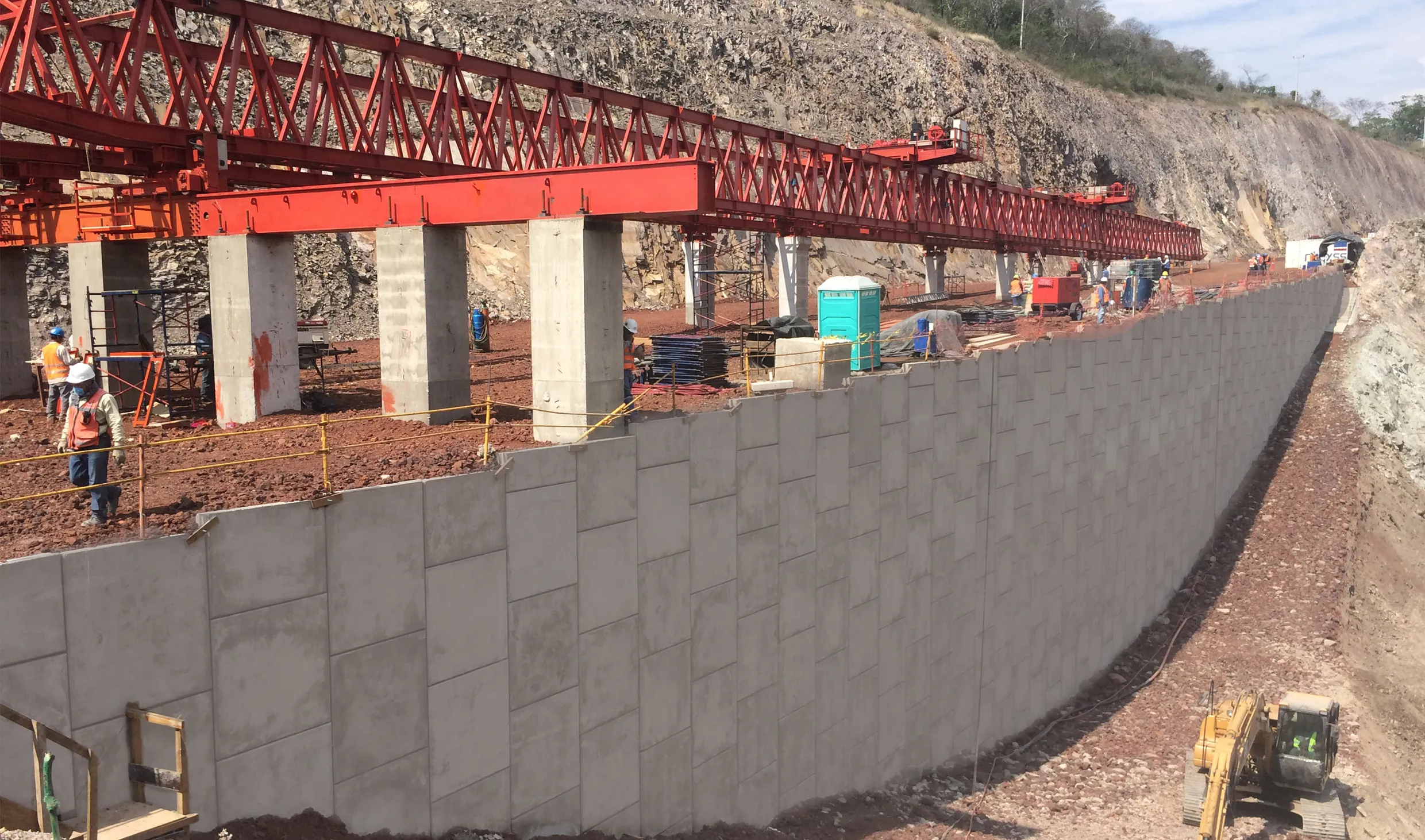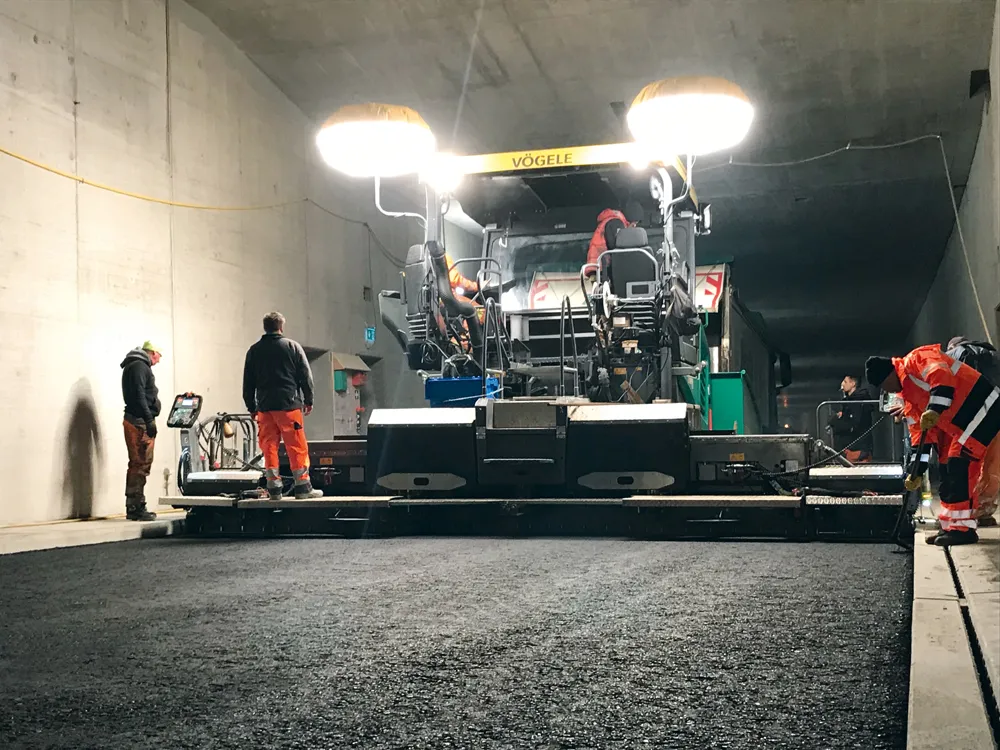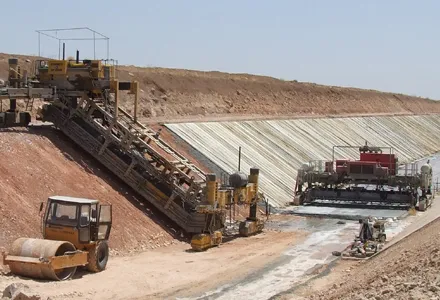
Mexico’s new highway link will improve transport between Guadalajara and Puerto Vallarta - Mauro Nogarin writes
Mexico’s highway infrastructure plays a key role in the country’s economy, carrying around 55% of its freight and 98% of its passenger traffic. To meet this demand, the network has 377,660km of roads in all. This is split between the 49,652km federal highway network, the 83,982km of state roads, 169,429km of rural roads and 74,596km of access roads.
However, although the federal road network manages to connect a large part of the country's strategic points, some stretches already present problems with saturation. Congestion is particularly acute for the federal highways that connect the main cities with the centre of the country. There are also local connection problems with access to ports, international crossings and the entrances to Mexico’s main cities.
To help tackle the problem, work commenced the Jala-Puerto Vallarta highway in the first quarter of 2012. The project is being carried out under the supervision of the Subsecretariat of Infrastructure and has been divided into two sections. Work started on the 83km Jala-Compostela Las Varas stretch in December 2015, with the project being managed by the National Fund for National Infrastructure (FONADIN). Meanwhile work on the 77km Las Varas - Puerto Vallarta section is being carried out under a Public Private Partnership (PPP) contract.
Puerto Vallarta is an important tourist destination for traffic coming from or through the city of Guadalajara. And the new highway will cut journey times considerably as it will cut the distance by 78km compared to the current route. For drivers this is expected to reduce the journey times by as much as two hours.
The total length of the new highway will be 160km and the 12m width is sufficient for a traffic lane in each direction.
However, one of the biggest challenges to the project was that the environmental study highlighted the presence of a large number of species of wild animals in addition to a great variety of flora. Due to Mexico’s strict regulations on minimising the environmental impact of construction work, this required extensive precautions. The aim of the team was to deliver the new road while also preserving the environment along the route of the highway alignment.
The construction of the Jala - Las Varas section of the road was itself carried out in three separate sections. These included the construction of the main road and the peripheral works for the bridges, as well as the upper and lower access roads.
The main characteristics of the road’s cross-section was for two 3.5m-wide lanes for handling traffic, as well as border areas on each side, measuring 2.5m-wide.
%$Image:
Statistics
JALA – lAS VARAS SECTION
Length: 83km
Width: 12m
LAS VARAS - PUERTO VALLARTA SECTION
Length: 77km
Width: 12mEarthmoving was carried out to deliver the necessary grade, with aggregates then being brought in. Single drum rollers were utilised to compact the base layers to a density of 90% and to a depth of 100mm. For the base structure, 38mm aggregate was used.
Prior to the embankment construction, major drainage works were carried out, providing all the necessary network for stormwater removal as well as the interconnected vaults.
The subsoil layer used included the specified aggregate grades required for the section, with multiple layers being compacted to the required 95% density and to a thickness of 300mm.
The stabilised base was built up using aggregates measuring 38mm and also using 5% of Portland cement. This was later compacted to 100% and with a thickness of 150mm. An RR-3K asphalt emulsion was then used with a dosage of 0.8-1.2 litres/m2.
The asphalt meanwhile was made using aggregates measuring up to 19mm and an
AC-20 material, which was compacted to 100% of density with a minimum temperature of 120°C. In order to waterproof the road and prevent water leaks, an RR-3K rapid break emulsion was applied with a ratio of 1.4-1.8litres/m2. One of the most complex stages of this highway section is for the construction and assembly of bridge structures at Tetitlan and Tetiteco.
In these works, the Mexican company Grúas y Equipos Gracias moved and assembled the necessary components which weighed up to 140tonnes using a 350tonne capacity
The second stretch of Las Varas - Puerto Vallarta route was awarded in May 2016 to the construction company, the Ideal Group. This section of the highway is intended to cut congestion on the existing Federal Highway 200. With the new section of road there will be a greater separation of long distance and local traffic, particularly for drivers coming from Guadalajara and Tepic.
The total length of the project includes the 77km of main road with an additional 6.7km of access roads, in addition there are seven junctions, six of which are more complicated due to the uneven terrain.
The motorway project has been divided into five sections, which correspond to the main towns along the route.
Due to the characteristics of the local topography, the project has been carried out in both flat and mountainous areas. The mountainous areas have resulted in the need for the construction of 45 civil structures, while there are also 366 separate drainage areas on the main road and 46 drainage areas for the access roads.
The project was approved by Mexico’s Ministry of Communication and Transportation (
The embankments are being constructed using material sourced from approved deposits.
The subgrade layers for the roadway are being made using aggregates measuring up to 76mm and with layers 300mm thick. Meanwhile the surface layers for the roadway are being compacted to a density of 90%.
An emulsion is being used with 1.2litres/m², on which the asphalt is then laid. The asphalt base meanwhile is 120mm thick and compacted to a density of 95%.
The most complex sections of the project are for the construction of the three tunnels. The Guamúchil tunnel is 1.1km long while the Los Bueyes tunnel is 340m long. However the shortest of the three tunnels, which measures 161.4m, has not so far been named.








